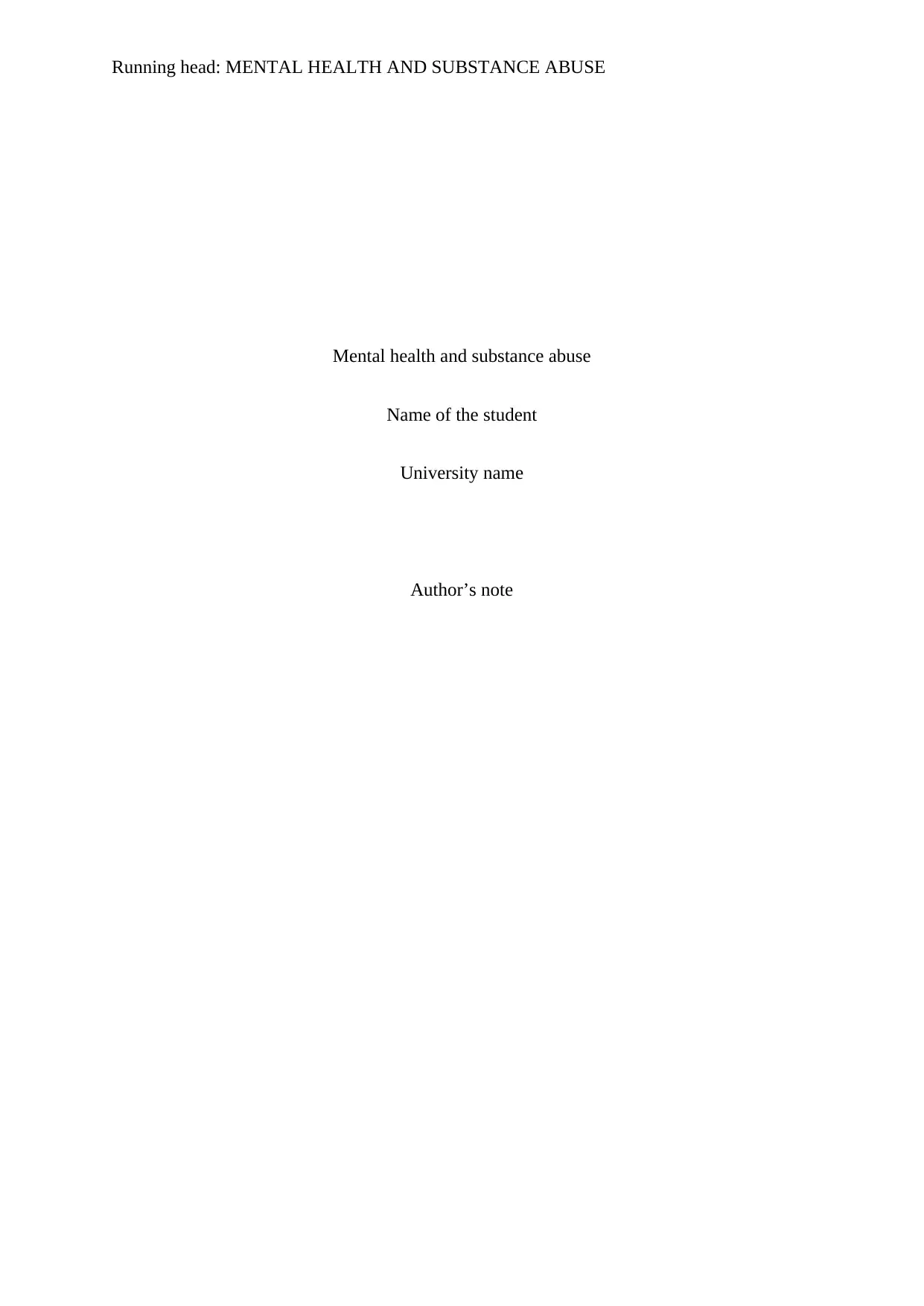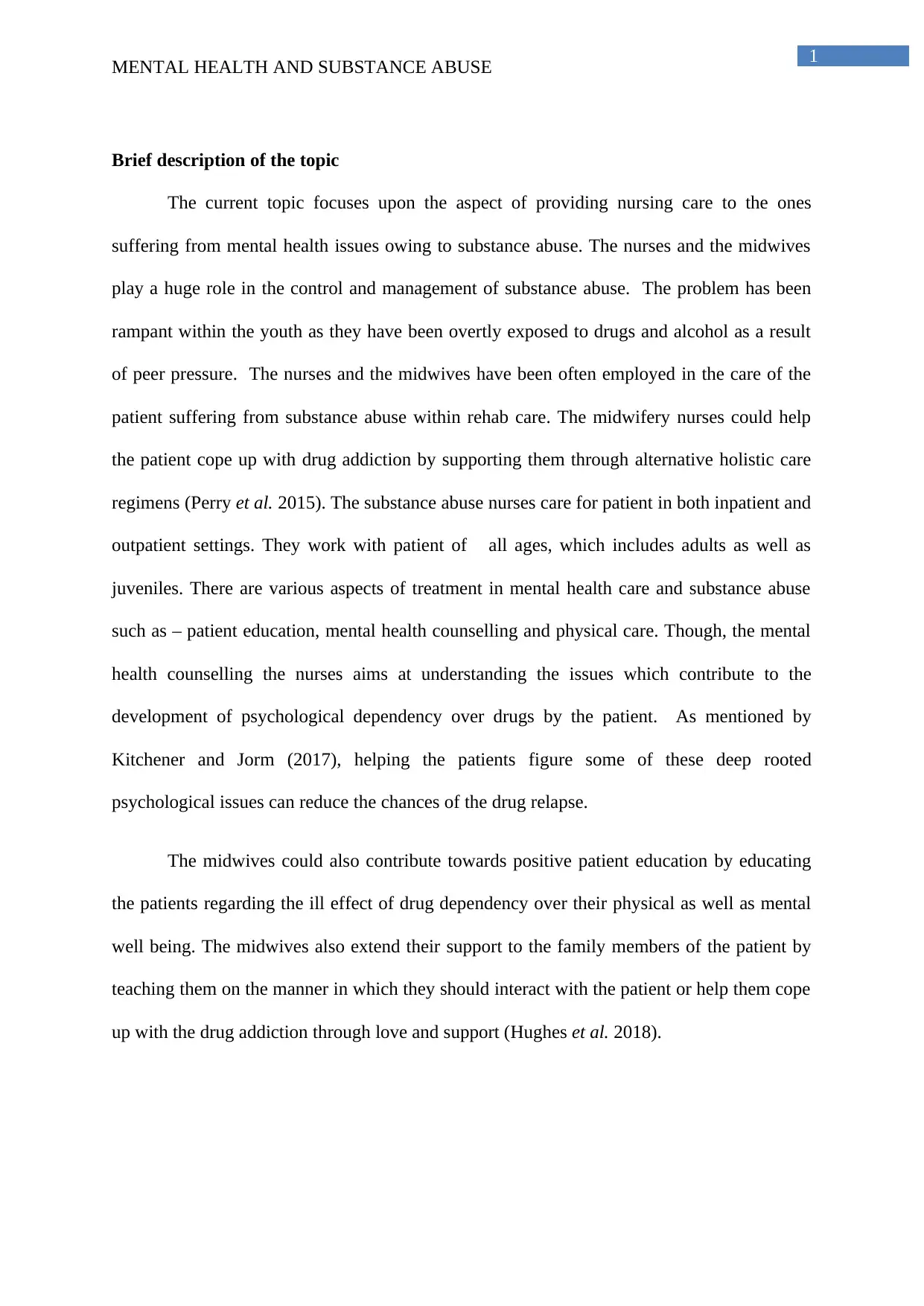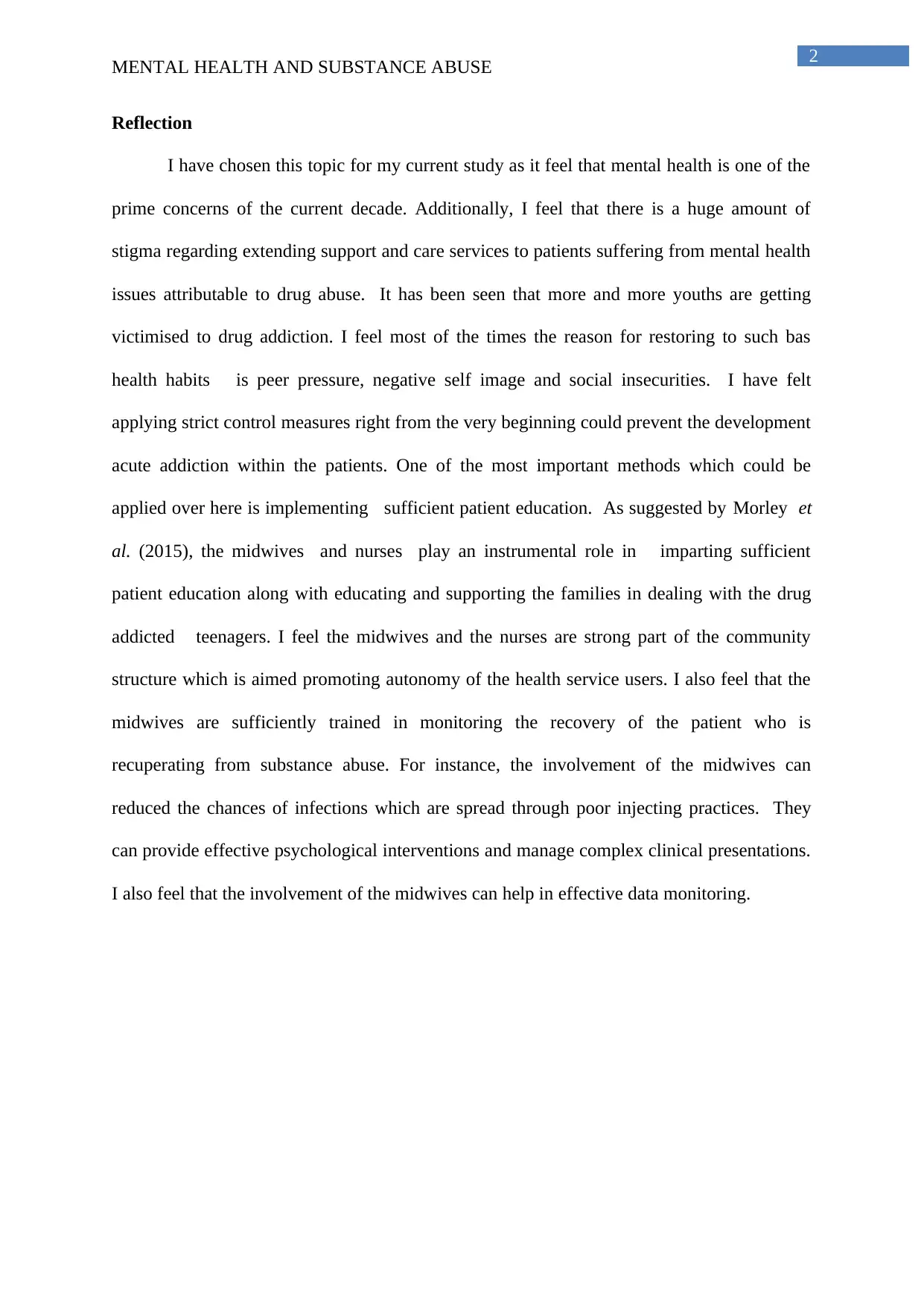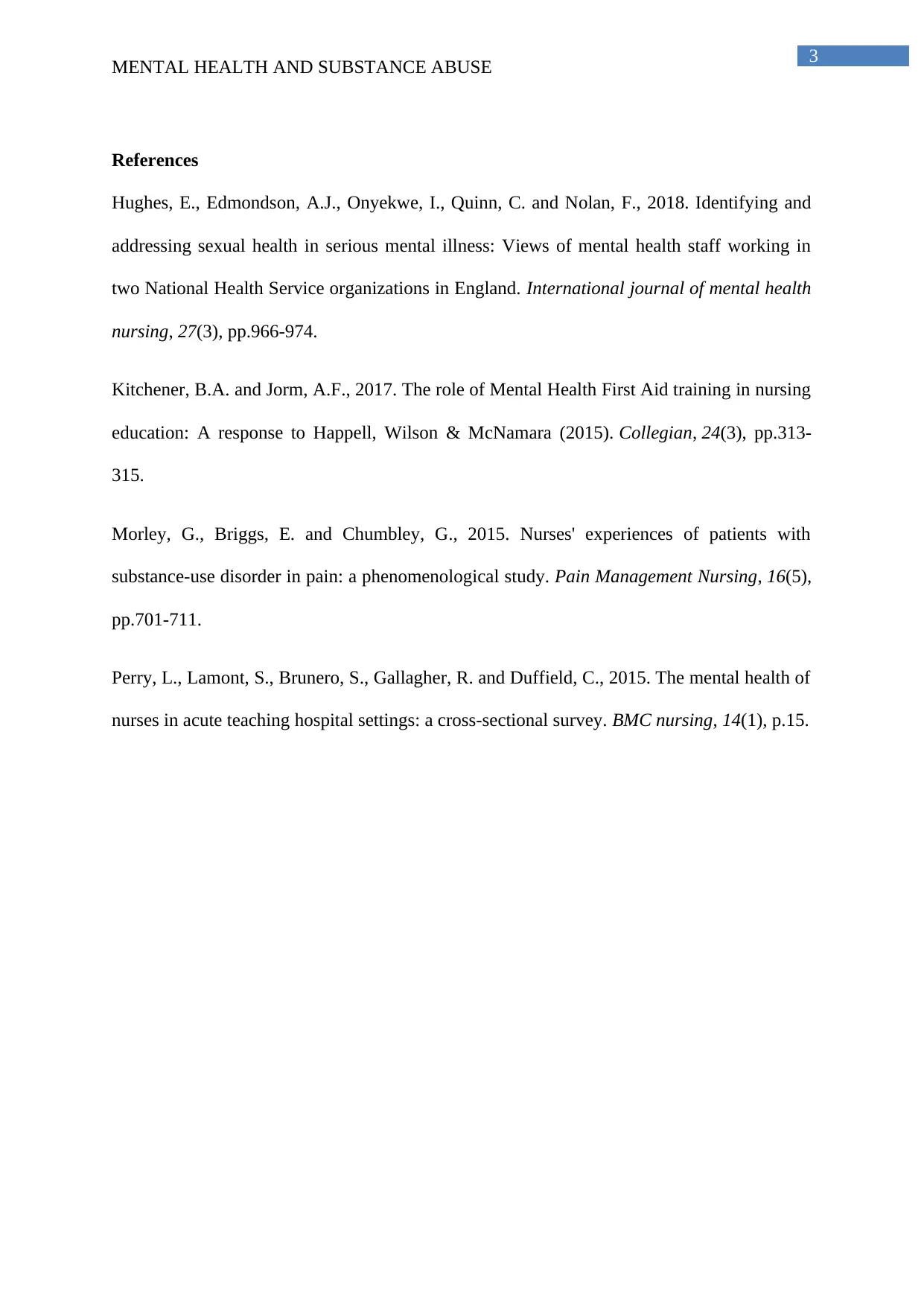Nursing Interventions for Mental Health and Substance Abuse Issues
VerifiedAdded on 2023/06/11
|4
|824
|217
Essay
AI Summary
This essay discusses the critical role of nurses and midwives in providing care to individuals suffering from mental health issues related to substance abuse. It highlights the increasing prevalence of substance abuse among youth due to factors like peer pressure and the importance of early intervention through patient education and psychological support. The essay reflects on the significance of addressing the stigma surrounding mental health and substance abuse, emphasizing the potential of nurses and midwives in community health structures to promote patient autonomy and monitor recovery. It also touches upon the midwives' role in reducing infection risks associated with injecting practices and managing complex clinical presentations, ultimately advocating for comprehensive care that includes patient education, family support, and psychological interventions.
1 out of 4











![[object Object]](/_next/static/media/star-bottom.7253800d.svg)